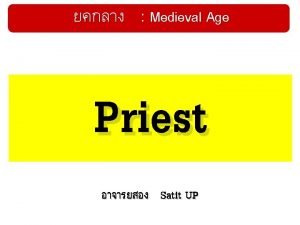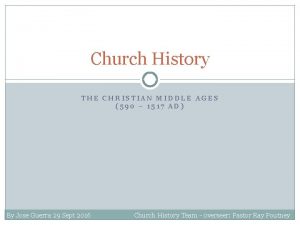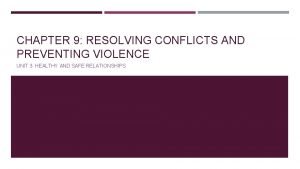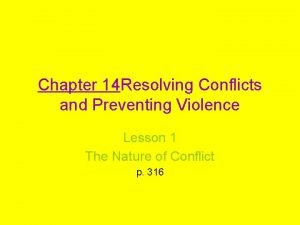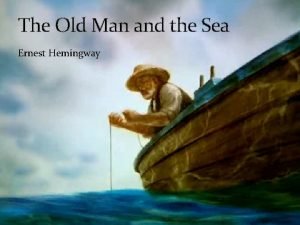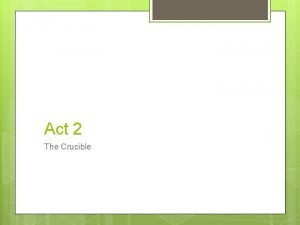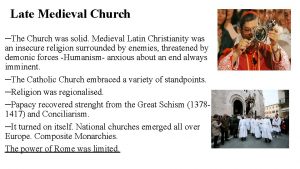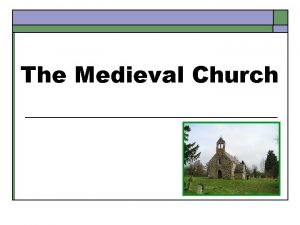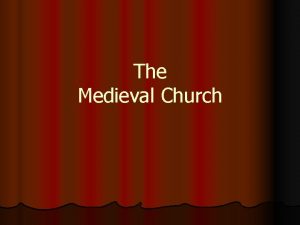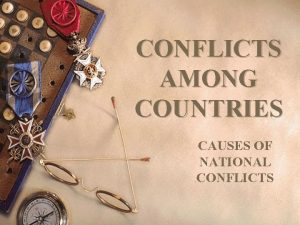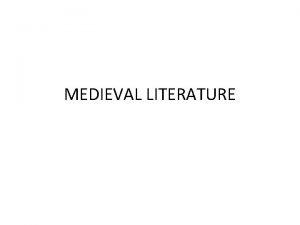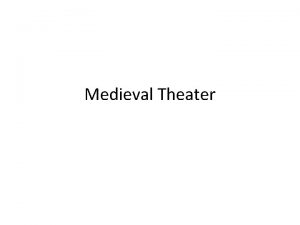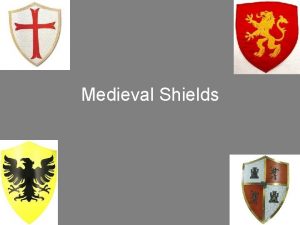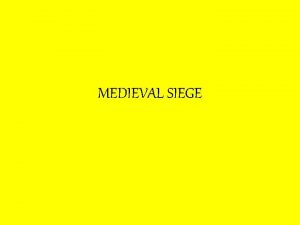18 THE MEDIEVAL CHURCH AND SPIRITUALSECULAR CONFLICTS POSTCAROLINGIAN









- Slides: 9

18. THE MEDIEVAL CHURCH AND SPIRITUAL-SECULAR CONFLICTS

POST-CAROLINGIAN EUROPE In 919, King Henry I of Saxony was elected king of this confederation. His son, Otto the Great was able to unite the eastern duchies and laid the foundations for the revival of the empire. Otto successfully conquered Lombardy to the south in 951 and in 955, Otto defeated Hungarian invaders to solidify control of the Eastern Frankish Kingdom. In 962, Otto entered Rome where the Pope crowned him emperor of the Holy Roman Empire.

OTTO THE GREAT AND GERMAN IMPERIAL POLICY Otto established the main outlines of German imperial policy for the next 300 years. This policy included: 1. Conflict with the German Aristocracy 2. Reliance on bishops and abbots as imperial agents 3. A preoccupation with Italy Three power bases: the king, the church, and the aristocracy. Otto the Great

RADICAL REFORMERS The most impressive reformer of the church was Pope Leo IX (1049 -1054) who condemned simony (the practice of buying Church offices), fostered monastic reforms, and encouraged a group of young radical reformers. Goals of the radical reformers: • They wanted to improve the morality of the priests an eliminate married priests. • They wanted churches to be free of secular control. Forbid the owning of churches or monasteries. • They condemned lay investiture, the practice by which kings and emperors appointed bishops Pope Leo IX • They insisted that the Pope, not the emperor, was the supreme representative of God on Earth and as such had the right to exercise a universal sovereignty.

THE IDEA OF EUROPEAN UNIVERSALISM AND EMERGING CONFLICT In 1059, the right to elect Popes shifted to the College of Cardinals. This ensured that the church and not political leaders would elect the Pope. In 1073, Pope Gregory VII was elected pope. He was a noted reformer who believed in a strong, assertive, militant papacy that would oppose secular authority. Gregory VII had two goals: • He wanted to reform churches and priests, including celibacy for priests. • He wanted to rid the church of secular influence and reform. Pope Gregory VII

THE INVESTITURE CONTROVERSY In 1075, Henry IV, with the support of many of the German bishops, attempted to depose Gregory. In response, Gregory excommunicated and deposed Henry. The Pope also freed the German nobility from their obligations to Henry and encouraged them to rebel. In the face of large anti-imperial sentiment, Henry IV crossed the Alps in the dead of winter 1077 to ask forgiveness. Once Henry was back in power, he once again resumed appointing bishops against the will of Gregory once again excommunicated and deposed Henry but this time the German aristocracy and bishops remained loyal. Henry IV asks forgiveness and reconciliation

THE CONCORDAT OF WORMS (1122) Gregory’s successors rekindled the opposition to Henry and even convinced Henry’s son to join the revolt. The conflict only ended in 1122 when Emperor Henry V (1106 -1125) and Pope Calixtus II (1119 -1124) reached an agreement known as the Concordat of Worms. It differentiated between the royal and spiritual spheres of authority and allowed the emperors a limited role in episcopal election and investiture. This compromise changed the nature of royal rule in the empire, weakening the emperors and contributing to the long -term decline of royal government in Germany. Henry V being crowned by the Pope

THE DECLINE OF THE HOLY ROMAN EMPIRE

THE HEIGHT OF PAPAL POWER During the pontificate of Innocent III (1198 -1216) the Papacy reached the height of its power. Innocent made and deposed emperors, excommunicated kings, summoned a crusade against heretics in the south of France, and placed whole countries such as England France under interdict (suspension of all religious services) when rulers contradicted him. At the Fourth Lateran Council (1215), Innocent is bathed in power as secular officials from all over Europe came to a meeting where the Pope confirms the legitimacy of the reforms of the past century. Innocent also called for crusades against another group of people – Muslims who threatened Constantinople. Pope Innocent III
